Breaking the scheme of traditional tests in ESO is not a utopia
- There are no end-of-quarter exams at ikastola Laskorain, in the first cycle of Compulsory Secondary Education. But then, how do they evaluate the students? Where does the final rating come from? Do you get to Baccalaureate well prepared?... “Changes in ESO are not common and it is not easy, but it is not impossible,” they tell us.

They have made it clear to us from the very beginning: they do tests at the Laskorain de Tolosa ikastola, but not in a traditional way. They are not enemies that serve to qualify once the lesson is finished, they are the tests that are carried out during the process, often without qualifications, so that the students know what they are doing well, because stressing the strengths of the student, besides being an excellent opportunity to motivate, is an effective way to learn, and improve what they have, tell them where to put forces, instead of listing it, saturate the student and a lot of errors that improve. Tests are one more tool for students to continue progressing with the professor's observations, but in general they are not final tests. Seven ikastolas are working on this model, last year it was implemented in Laskorain in 1st ESO, this course has been implemented from 5th Primary to 2nd Compulsory Secondary Education, and the intention is to progressively extend it to all levels, including the years of Bachiller. Before we go into the questions, concerns and conclusions found along the way, let us count the project step by step.
Due to the obsolescence of the Compulsory Secondary Education model, Laskorain has given way to interdisciplinary projects: more and more schools work on projects that bring together knowledge and challenges from different areas and subjects, and the evaluation system they have put in place must be understood as linked to it. This was explained to us by the director of Laskorain Ainhoa Artolazabal and pedagogy manager Ion Ander Maiz.
The student receives two stars and a desire, two things well done and one that needs to be improved. "Research says we learn about everything we do right"
“According to the studies, traditional studies have an impact on the improvement of the learning process, but the forgetfulness curve will fall significantly, that is, we memorize it, but in a short time we forget much of that knowledge. On the contrary, the educational evaluation shows us a path, rather than at the end of the exam, because at first and throughout the process it tells the students where they are at each moment, what they do well and what they have to improve, and we place the enemies together with other evaluation instruments. This examination is not qualified, because as a professor I am not interested in knowing to what extent he has demonstrated it in this examination, but to know how to use it in the integration activity that I am going to ask for later, in the project, in the drafting or whatever. Following the competencies, the objective is to use what is learned in the real context”.
Two stars and a desire
The function of the test changes radically, and that's why it's so important to know how to read the test well to draw useful conclusions. In this way, of course, the teacher's feedback is fundamental. After the examination, but also after a project, a work, a presentation or a writing – among the evaluation tools, because it is nothing but an enemy – in Laskorain they have organized a feedback: the student receives two stars and a desire, two well done things and one that needs to be improved. “Emphasizing what you have done well, because it is more effective at repeating on the following occasions, studies say that we learn above all about what we do well and also how important it is to maintain motivation and illusion. In order to improve, we have the habit of taking the red pen and identifying all the errors, but if the student only gets that, he risks collapsing, knowing what the priorities are and where to put forces. On the contrary, if I think about the purpose of the work or the project as a teacher, what or what aspects it has to focus on in order to achieve it, we will help you to move forward.” It is also important how to express things, as it is not the same to point out the error to explain what needs to be improved. “Let’s not forget, we all have things to improve, there’s always something to improve, and that’s in the learning process and in life, that’s not a mistake, it’s evolving.”
The pedagogical manager has given us a significant example: “If the cook tells us that we have hit the point of salt, that we have golden the onion very well, next time we remember it very well. Instead, if you're telling us little onion, too much salt, too little ink -- you can make a mess in your head, we're not going to process everything, it's better to focus on what. In the formative evaluation, the cook is testing and testing while he or she makes chipirones, self-regulating, a little less salt and more water, less parsley… and the objective is that gradually the student knows if he or she has thrown the salt well, so that the professor does not tell him or her all the time”.
Improve and improve, how long? Because there will be students who will never make the chipirones in ink beautifully. “The teacher has to try to get the student as close as possible to that success, but each one in its measure: we will not tell the student who has been right in the writing what he has to do to achieve the Excellent, but we will have to go climbing, modeling, walking little by little… and the personalized feedback is the most effective. In that we strive, as far as possible, taking into account the ratios we have.”
"Students make the transition much better towards educational assessment than teachers and families. After all, Primary Education is closer to this new model; we who were changing were professors of the ESO".
Tribute to the review
Considering all the above, our interlocutors say that exams are a very appropriate tool for students to reflect and self-regulate their learning process. For this test, the student will get to work and prepare the themes, responding at a given moment to a concrete situation, alone, without cooperative groups and without the help of the teachers, “and that is also a learning, but the examination must be done because we want to provoke it, and not the other way, to routinely put the examination and, therefore, provoke all of it”. The key is also what one wants to provoke: it is not the same to say “last morning we will do a test” in the classroom, or to say to the students “last morning we will do a writing in which we will work what we have learned in the previous weeks, that and the other”.
Evaluation and final rating periods
At the beginning of the course, a pre-evaluation is carried out in Laskorain for its location. Then, and despite using the continuous evaluation system, the evaluation periods are two: one in December/January and another in May/June. In most schools there are three evaluation periods, but in Laskorain they say that it is too early to draw conclusions within three months of starting the course and that they still do not know enough. Both in the tests and in the two evaluations, the student receives a feedback of four levels of achievement: Improvement, Basic, Advanced and Expert. In these so-called evaluation periods, with all the deliveries, works, projects, studies and evidence gathered so far, the objectives and, consequently, the concrete competencies required by the Decree are qualified. “The four-monthly evaluation period is a milestone, because we cannot be continuously with the same content, but it does not mean that the student cannot improve the level of achievement acquired. On the one hand, if the content has not been internalized, we have reinforcement measures, we organize a week to work in small groups with those who need it and offer reinforcement, and they have the opportunity to recover them. On the other hand, in view of the second evaluation – that of the end of the course –, despite addressing new contents, the students can continue to improve the procedures, improve the competences, and the Decree says that we must evaluate the competences. Content is a way to achieve these competences.” The four levels of achievement cited (Level of Improvement, Basic, Advanced, Expert) should be five for each centre at the end of the course, at the request of the Department of Education: Little, Pretty, Good, Very good, Excellent.
The family also receives feedback, less than the student, a summary. At the end of each project a newsletter is sent home with the objectives pursued by the project, the degree of achievement of each objective and three comments of the professor: two strengths and one improvement. At the end of each evaluation period, the summary of each subject comes home with the objectives, level of achievement and the tutor's comments.
Most of the professors chosen to implement the new model in the ESO are those who teach the Baccalaureate, and their opinion is a great guarantee, as the students know well what they will find in the Baccalaureate
Concerns, fears and consequences
“Students make the transition much better towards educational assessment than teachers and families. After all, Primary Education, as a stage and by its characteristics, is closer to this new model; the ones we changed were teachers of the ESO, therefore, the ones we have to change are teachers and families of the ESO”. However, they say that generating concerns and fears is both natural and human, and that's why they've tried to identify them and explain everything well. The ghost that repeats is “with these changes will the students perform well in the Baccalaureate?”
On the one hand, the interlocutors have told us that this ghost has always been there – the leap has always been great to Bachiller, and in ESO students are also experiencing great leaps by levels. “Even when we introduced the competency-based Eki didactic material, the same concerns arose, and the data are there, the results have not worsened in the Baccalaureate.”
On the other hand, the vast majority of professors who were selected in Laskorain last year to implement the new model in the first of the ESO were Bachiller second professors, and their opinion is a great guarantee, as they are professors who know very well what the students will find in the Baccalaureate. Well, these teachers have unanimously said that they would not return to the previous model, that they see the change in the right way.
The journey began last year and “it was not easy”, they have recognized, because it requires work, change of computer system, creation of new material, liberation of the faculty for the elaboration and training… and also resources and money are needed. Moreover, it is more difficult to make changes in ESO than in previous stages, because the requirements of the curriculum are more and more concrete, because the structure itself does not help – for example, the weight of the tutor in elementary school – and because although in this report we have focused on the evaluation system, to change it we have to transform the model itself. “But it’s not impossible,” they said. That’s right, “we can do what’s in our hands, because in the education system it’s not all in our hands.”
The course of change has been positive, the teaching staff is at ease and the students – that is what they have received from them – and Maiz and Artolazabal say they learn with the new model. Now in January, they're going to make a deeper valuation, but they're clear that they're going to have a lot to improve, as they tell the students, because there's always something to improve. They would also like to continue feeding and learning from other experiences, projects and educational centers.
An example of this is the recent meeting with the Catalan professor and researcher at Neus Sanmartí University and his team. Sanmartí is a referent in educational evaluation, for years researching the theme and supporting the centers, leading the Learning Assessment Task Force. “We explained what we are doing to them, shared our concerns and questions and saw that we are on the right track.” And that too is an incentive, of course, to follow the challenge with enthusiasm and strength.
.jpg)
“QUALIFICATION DETERMINES THE OVERALL ASSESSMENT”
The struggle and reflection for a different evaluation model are not new. Proof of this is the process that the LAB union has led a few years ago: it organized a conference to talk about evaluation, in which we met centers that worked without tests, that is, Primary. In these centers they evaluate without enemies we count it in the report.
As part of the conference, the topic was also discussed around a round table. For Professor Ane Sofedo, for example, it is a void that what is done is not an evaluation, but a qualification, and that conditions the whole evaluation. “From the moment you qualify, the minimum is what you are going to do next, because you have to note and say if the course is going to pass, and without questioning it, it is useless. Is everything evaluable? Yes, but you can't rate everything. Sometimes we get obsessed with whether objective evaluation is possible, without realizing that we are looking for objectivity: if we have to qualify, let it be as objective as possible. When we do not qualify, the observation is not objective, how it will be objective!”
He also criticized self-evaluation: “I agree with the meetings between teachers and students to discuss life or what is learned in the center, but as far as evaluation is concerned, lately there is a tendency to involve the child in their process, and in theory it is OK, if the child understands where this evaluation is made, because he knows what he does well and what is wrong, but he does not live in the wrong way, until he is told that he is poor. Agreeing the evaluation with the student runs the risk that the student will become his/her own police; if the teacher has to qualify him/her, the teacher will put a 5, the student will not put that 5 into himself/herself”.
Professor Alexander Barandiaran also left an interesting reflection on the possibility of evaluating the activity of professors beyond the evaluation of students: “I do not know if we tell the student to also evaluate the attitude of the professor with him, if his desires and rhythms have been respected, if what he has learned has served him for something… If not, let’s go to the usual, repeat what he has always done otherwise, focusing only on the students and not on the environment”.
Decalogue of the educational evaluation
With the support of the educators, the union published a decalogue, the result of the whole process. In short, it includes ten main ideas: it is necessary to establish a model of evaluation (what, how, when, who and for what to evaluate it); it is not a question of qualifying, and in addition to identifying strengths and weaknesses, it is useful to establish measures to analyze and improve its causes; external evaluation should not be a priority; evaluation should be developed by understanding and respecting the rhythms, competences, contexts and specificities of each student; training to evaluate competences, the framework and framework.
.jpg)
And for another year, the unions have organized prefabricated strikes for us. And we, individually, will decide whether or not to join the strike, without the need for any assembly at the school.
The strike model that I was taught is no longer in vogue, it seems. In my... [+]
Behin batean, gazterik, gidoi nagusia betetzea egokitu zitzaion. Elbira Zipitriaren ikasle izanak, ikastolen mugimendu berriarekin bat egin zuen. Irakasle izan zen artisau baino lehen. Gero, eskulturgile. Egun, musika jotzen du, bere gogoz eta bere buruarentzat. Eta beti, eta 35... [+]
Eric Etxartek Seaskako lehendakarikide ardura hartu berri du urte hatsarrean, Antton Etxeberri eta Sophie Layusekin batera. Peio Jorajuriaren lekukoa hartu dute hirurek, eta Lehendakarikidetza taldea osatu dute.
We were yelling, “New Year, what brings us?”, around the first night of the year, at the preemies who crossed the road. Waiting for the foals, drunks, us. And as there was no runner or selfie yet, we would find most of the Russians who had gone out to put down the excesses... [+]
Hearing and language teachers (PDI) and speech therapists are specialist teachers who work in both the public and the concerted school. Among its functions is the direct attention to students with language and communication difficulties, but also the establishment of incremental... [+]
The victims created by the IAP are not only functionalized teachers thanks to the stabilization process brought about by the IAP Law, but much more. Some have been given some media visibility as a result of Steilas's appeal, but most of them are invisible. All the victims of the... [+]









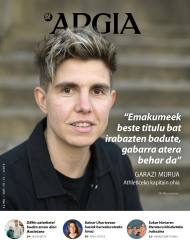

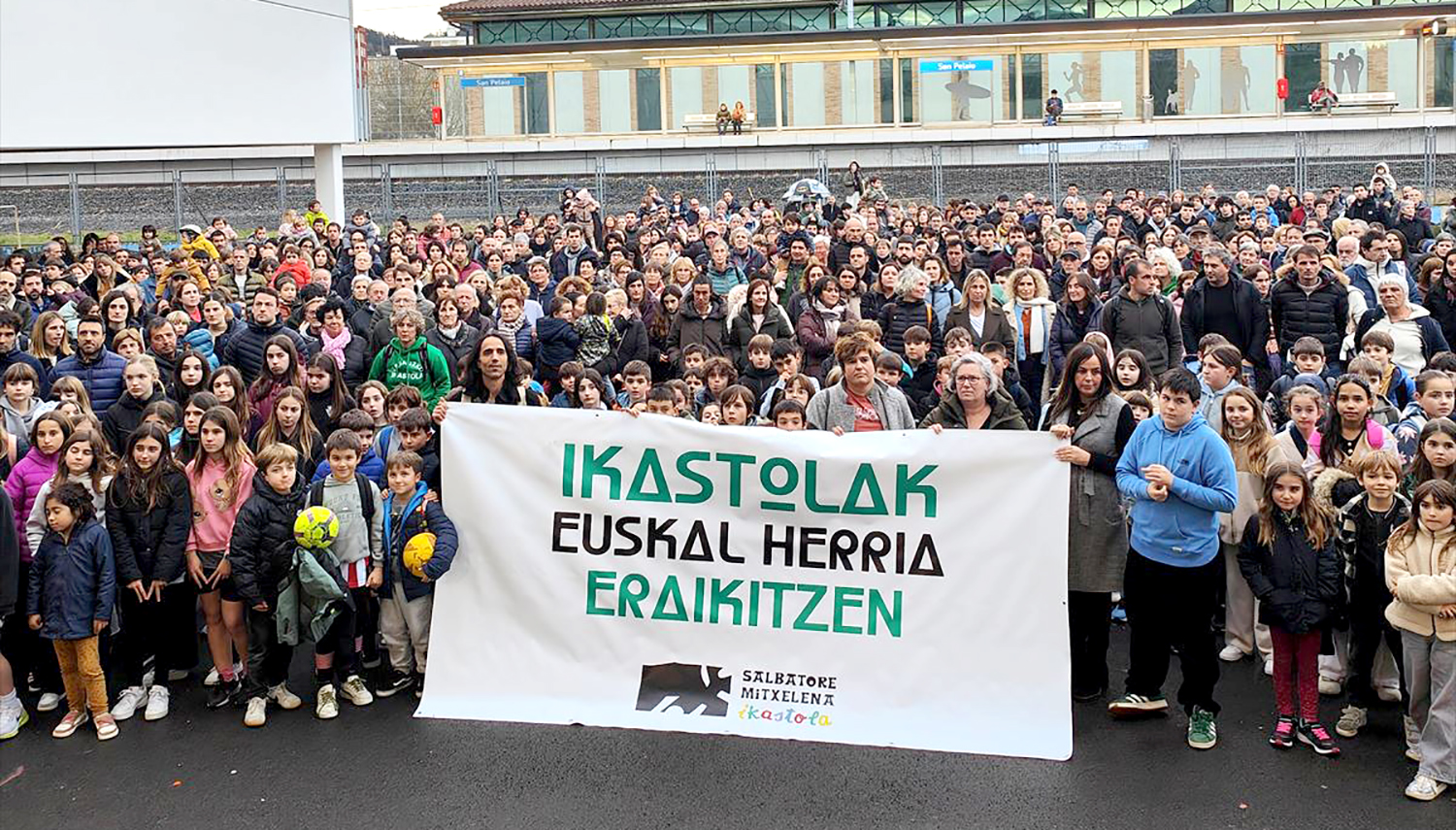

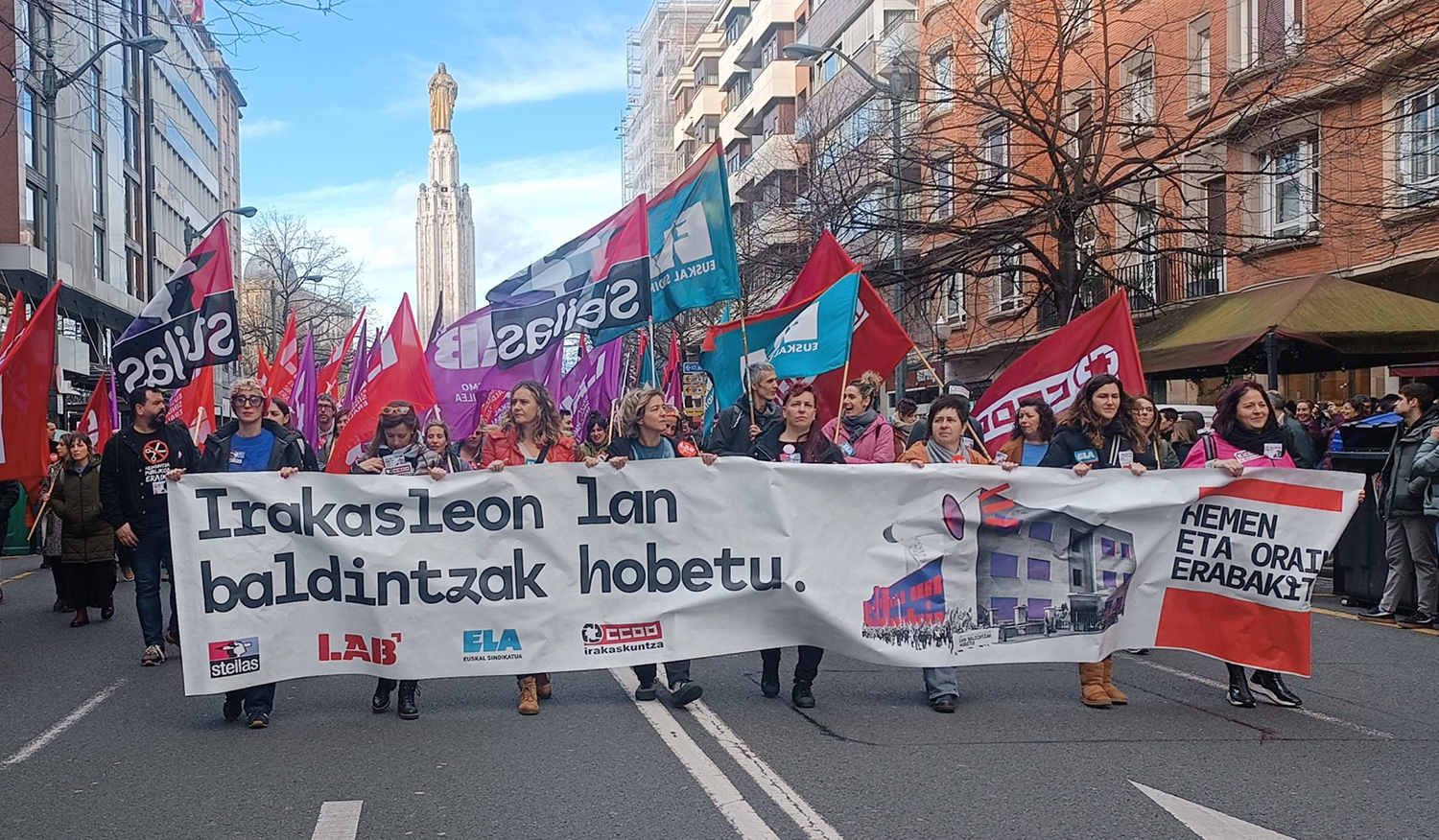
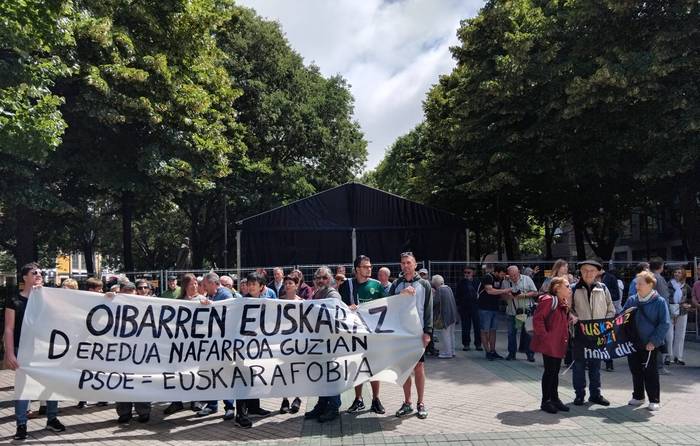

.jpg)
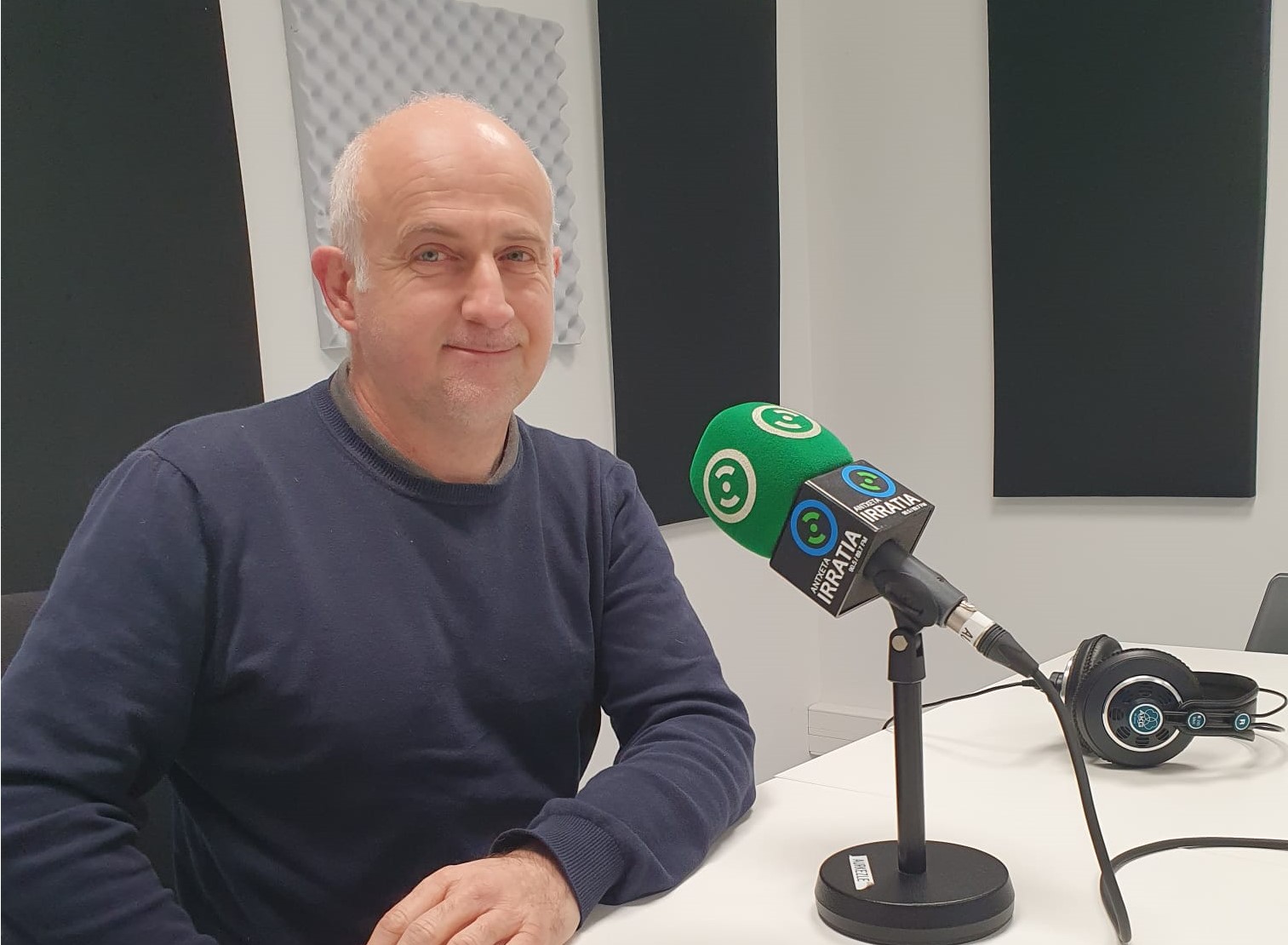
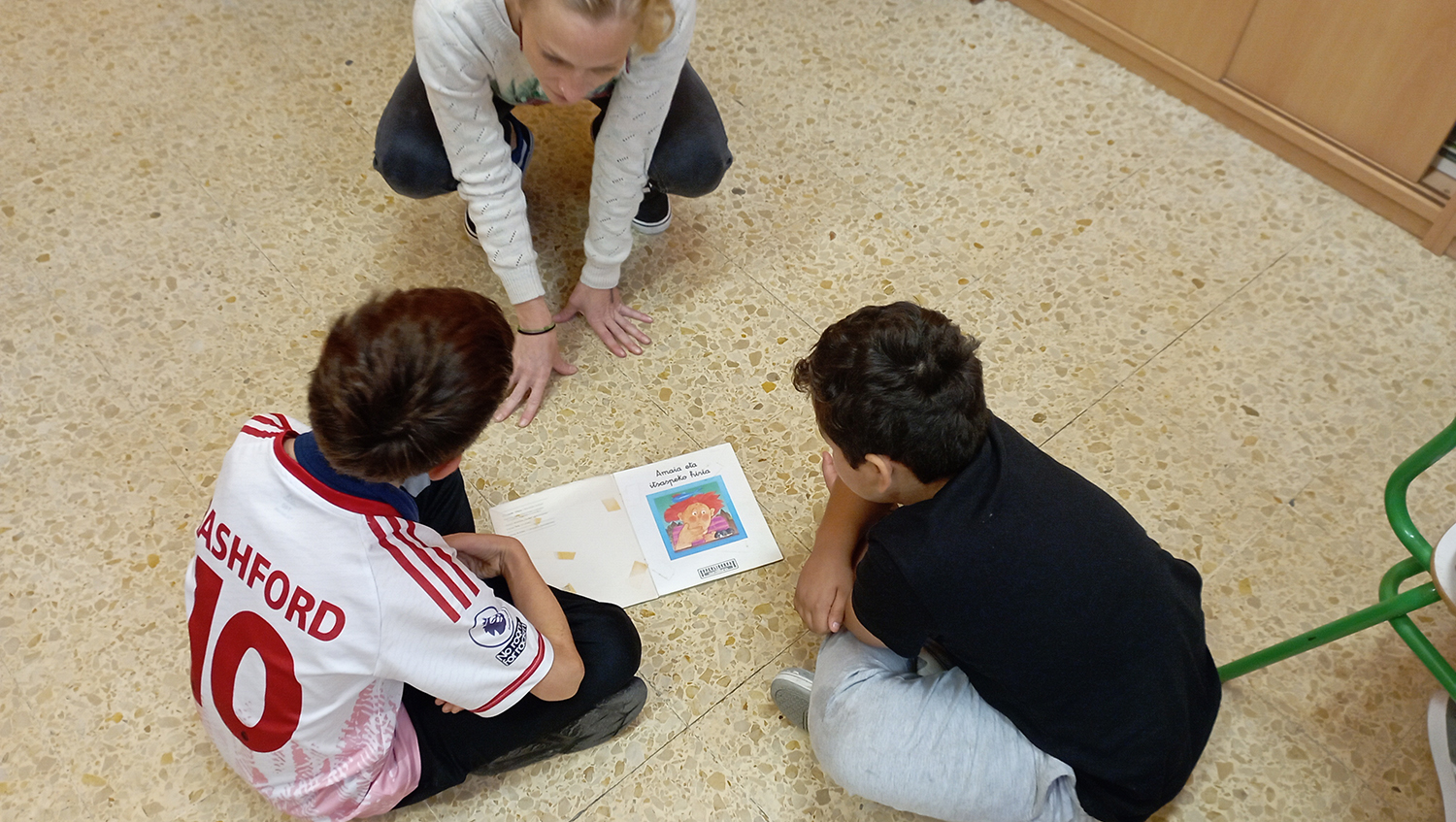

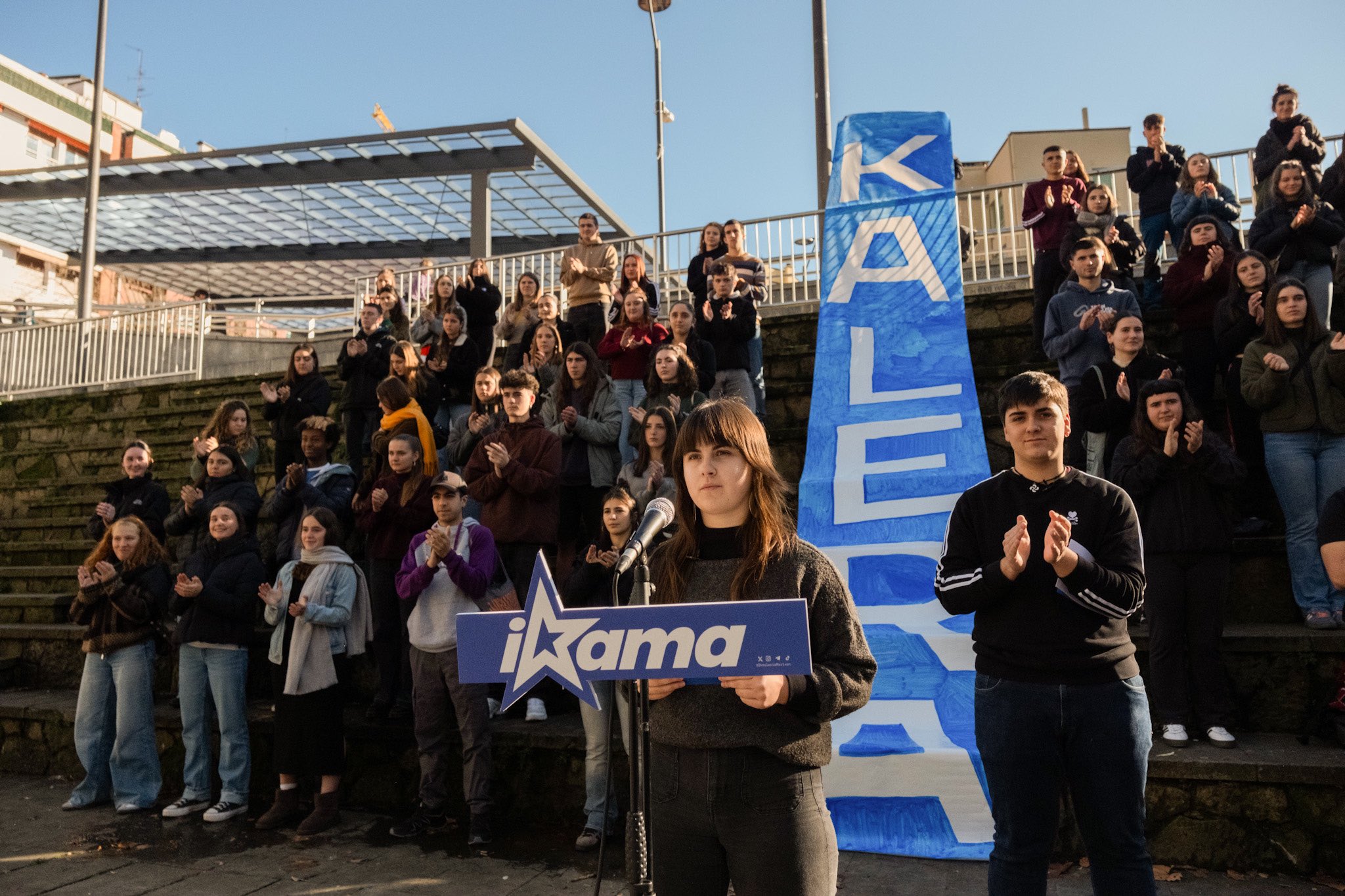
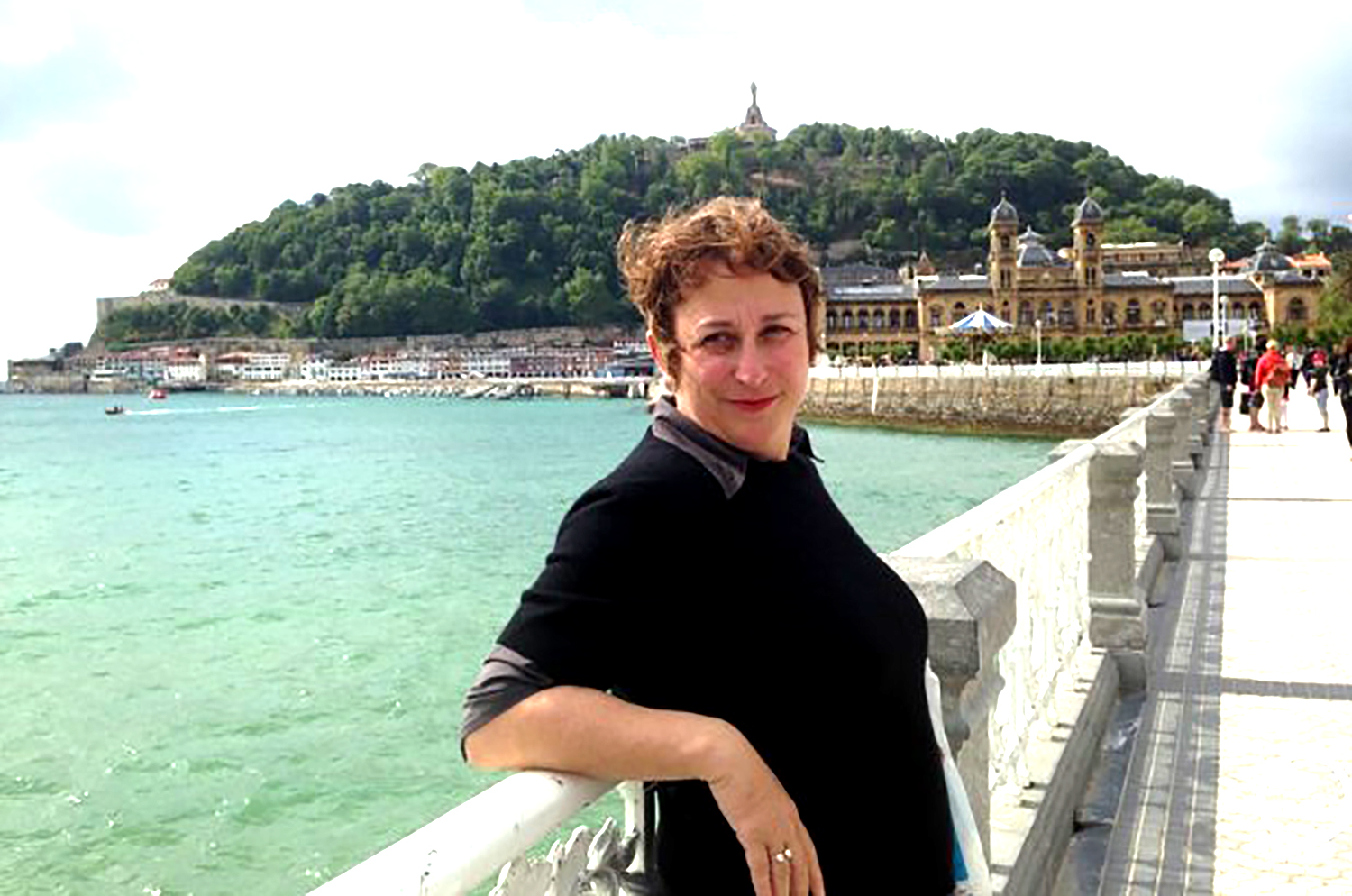
.jpg)